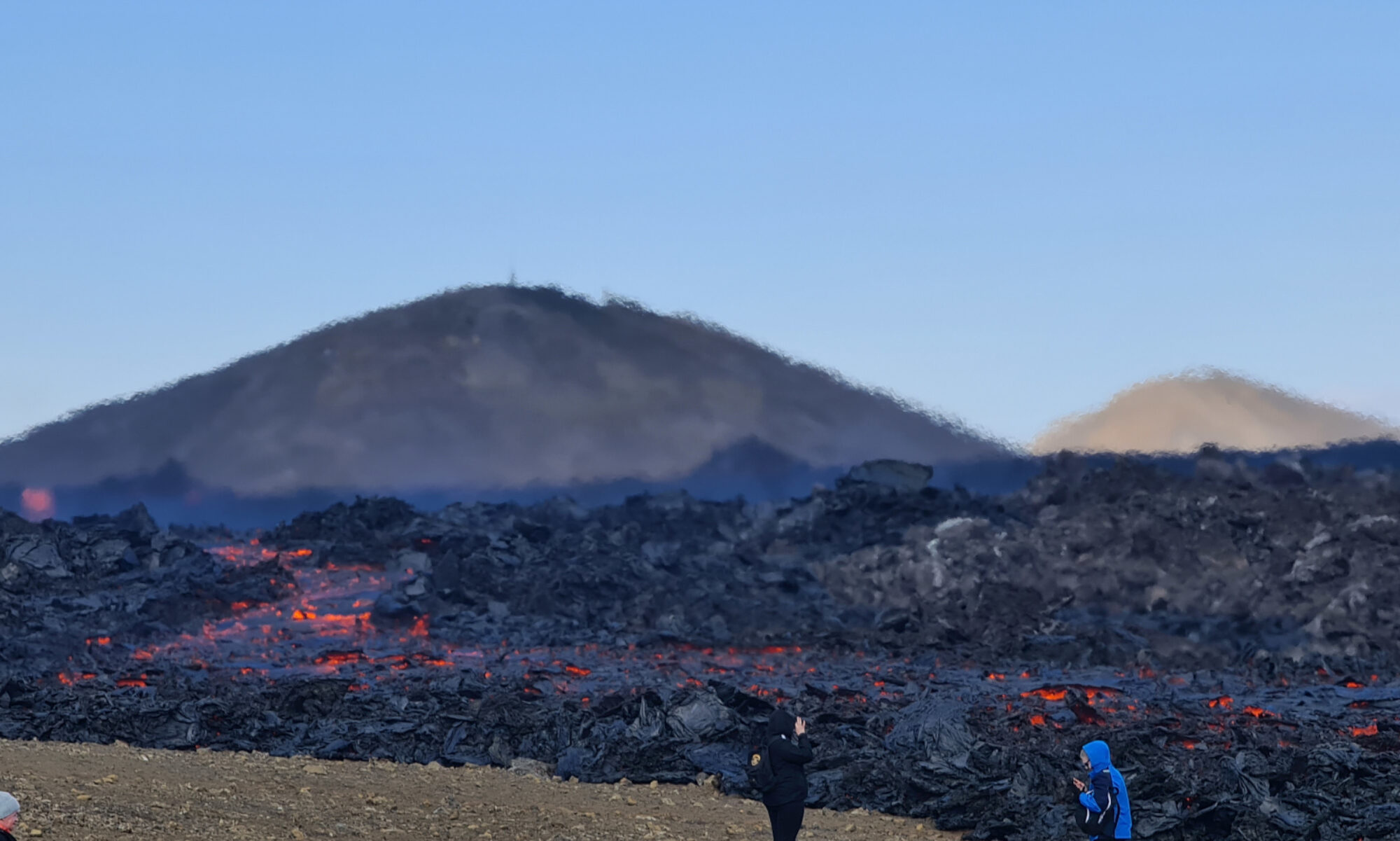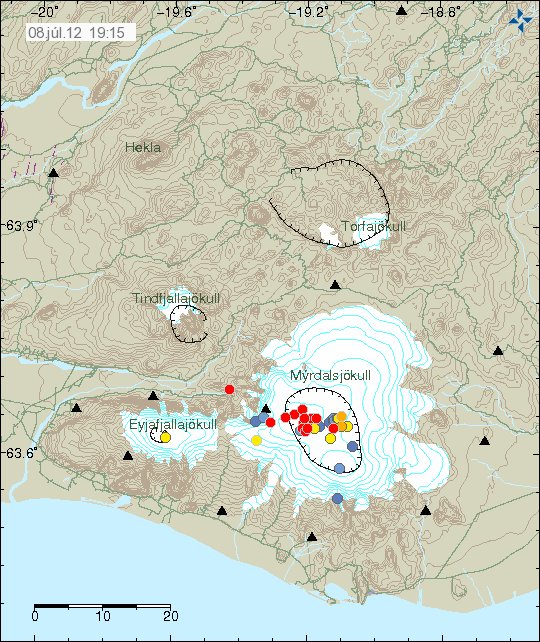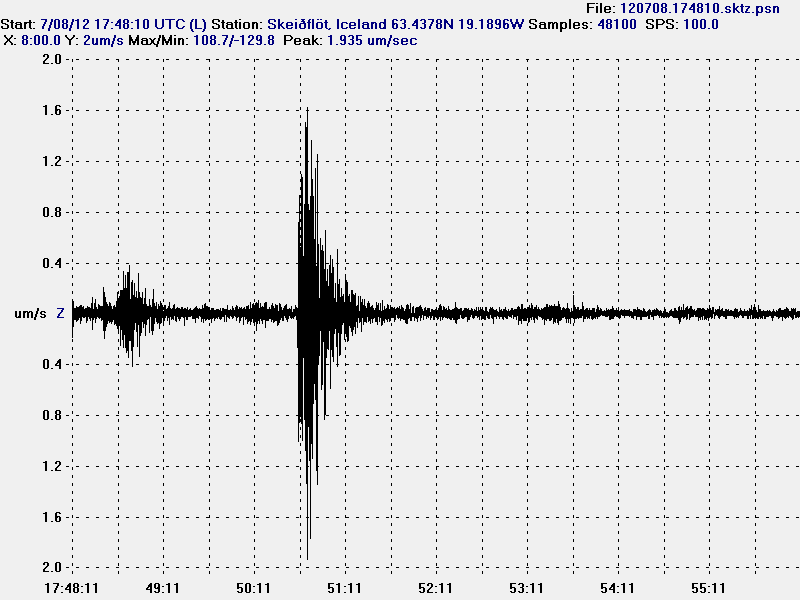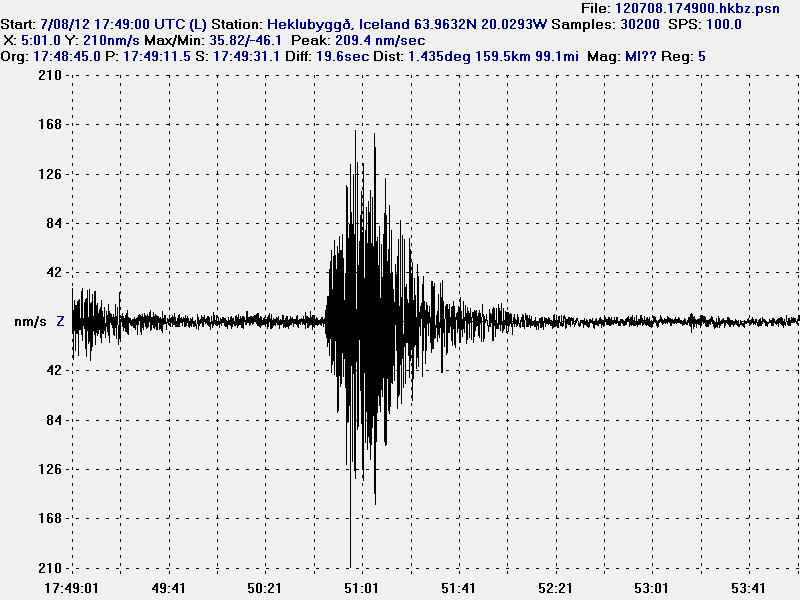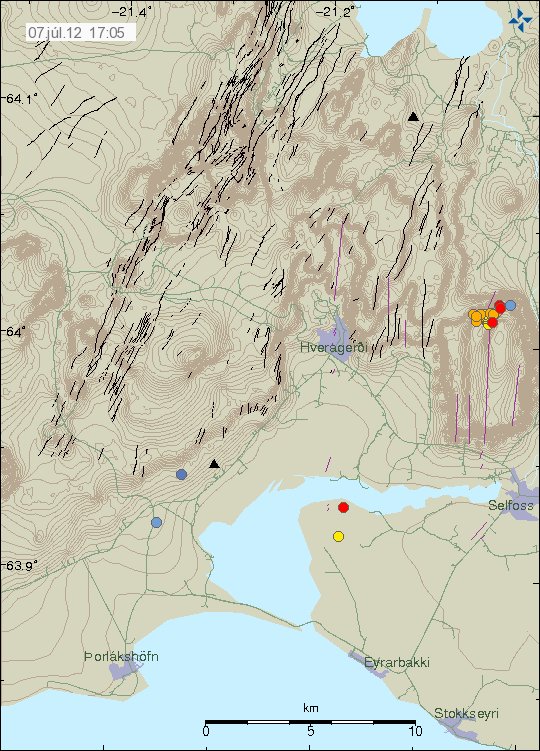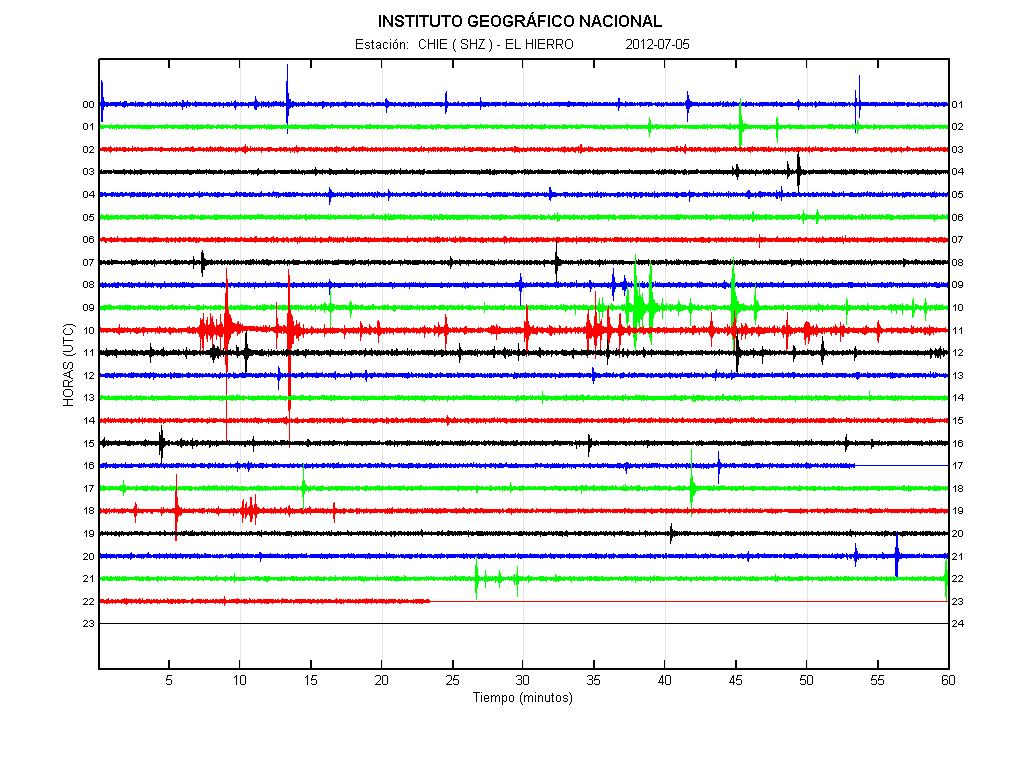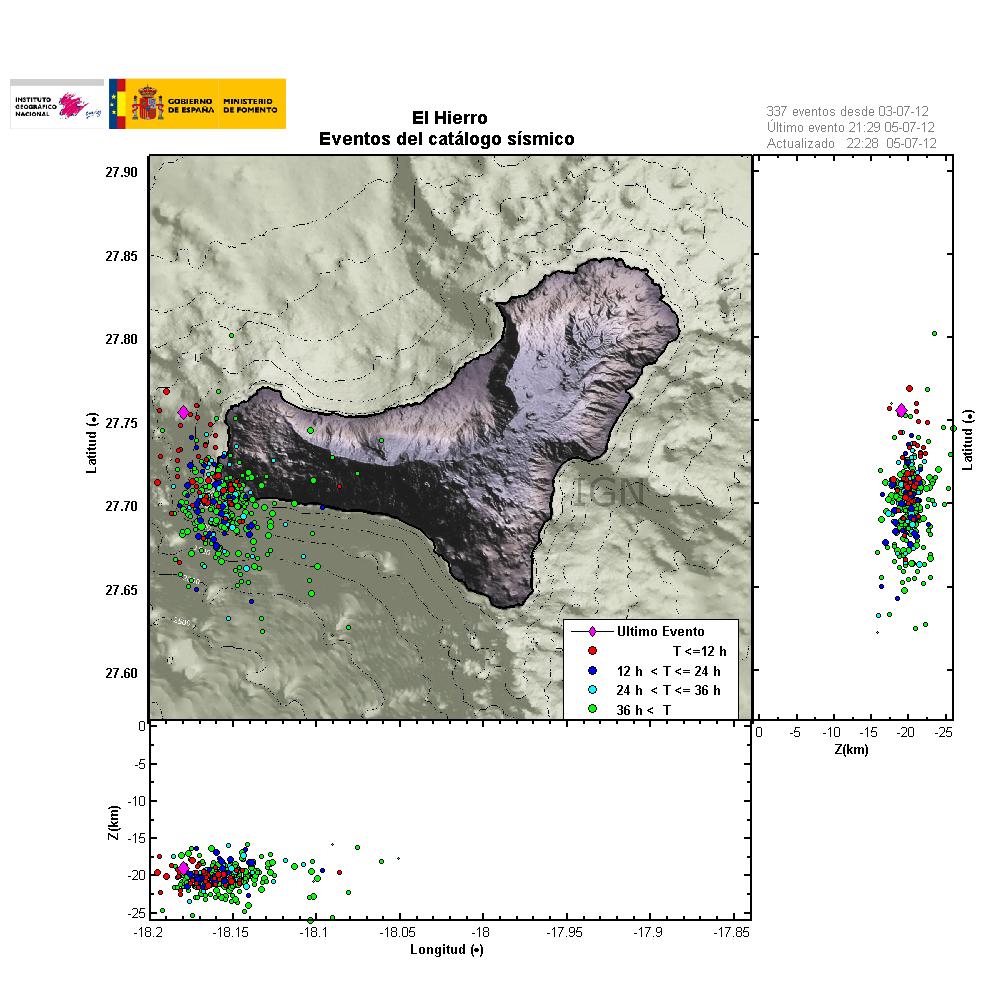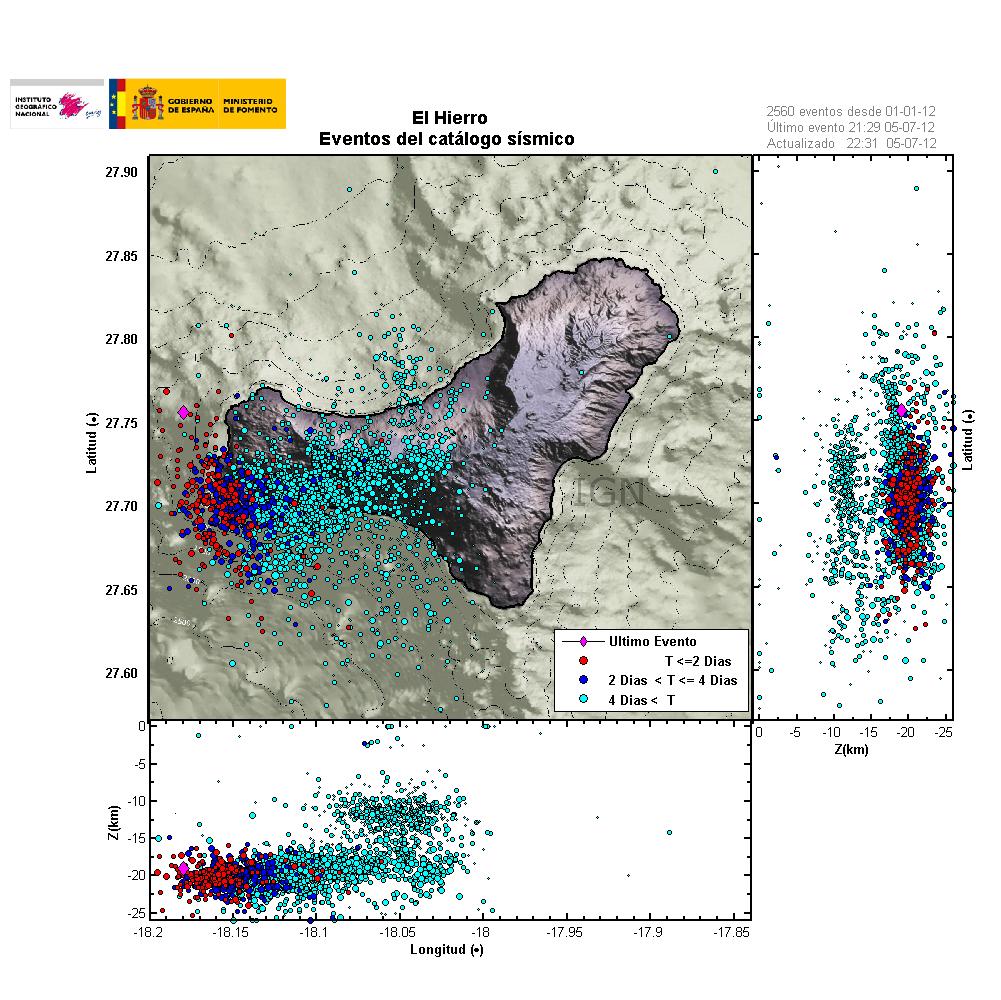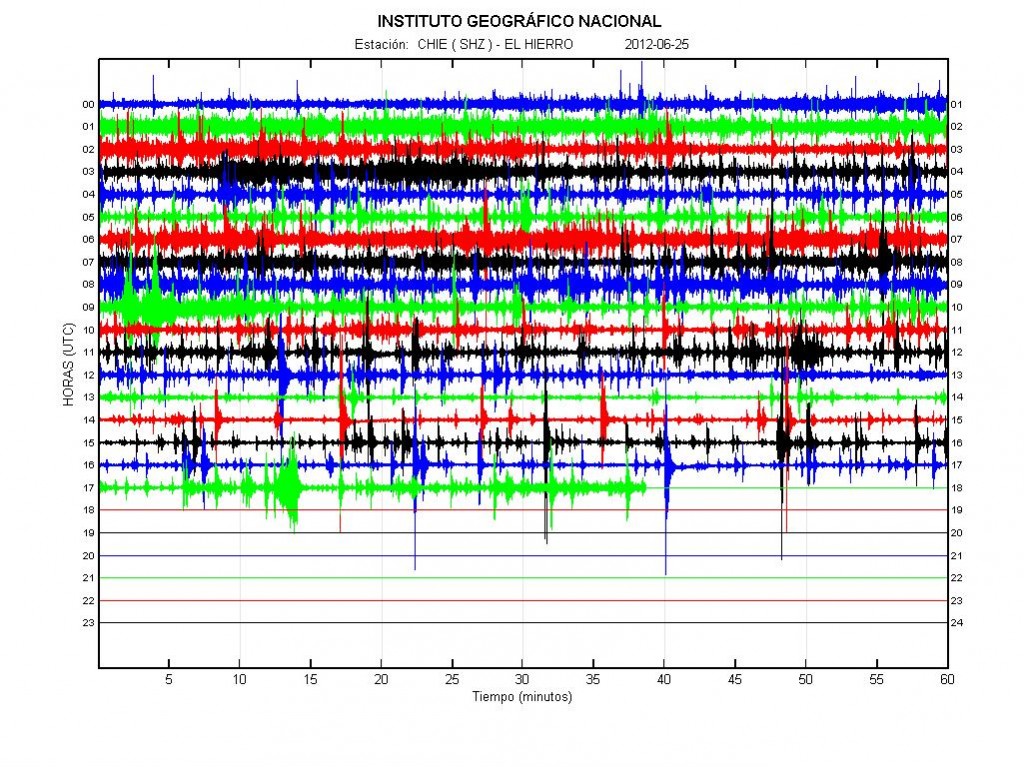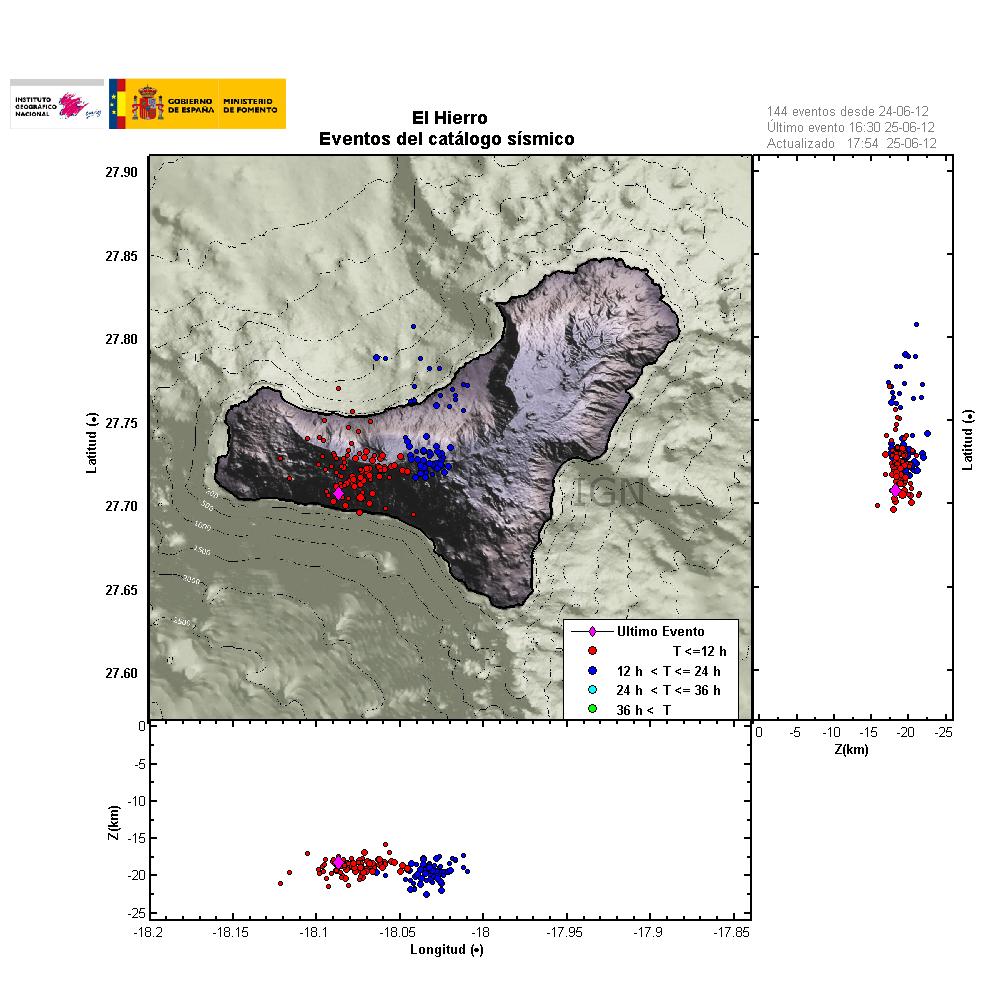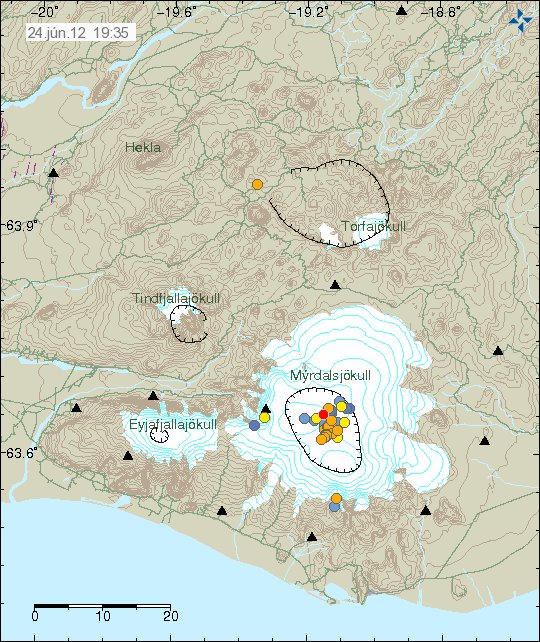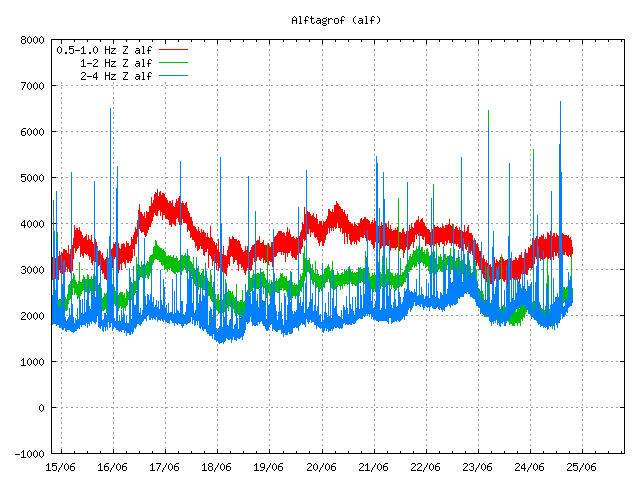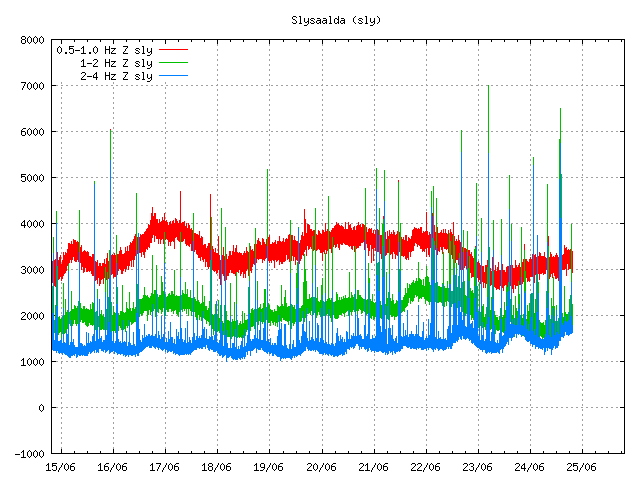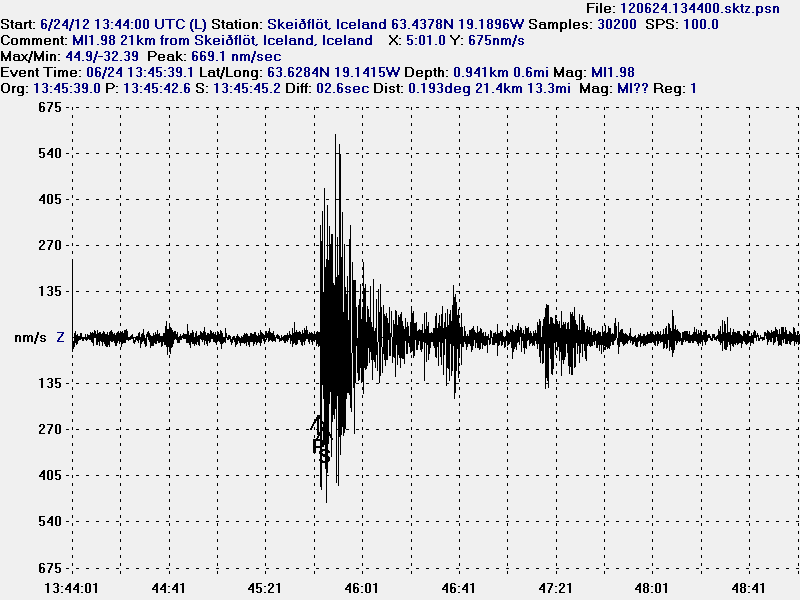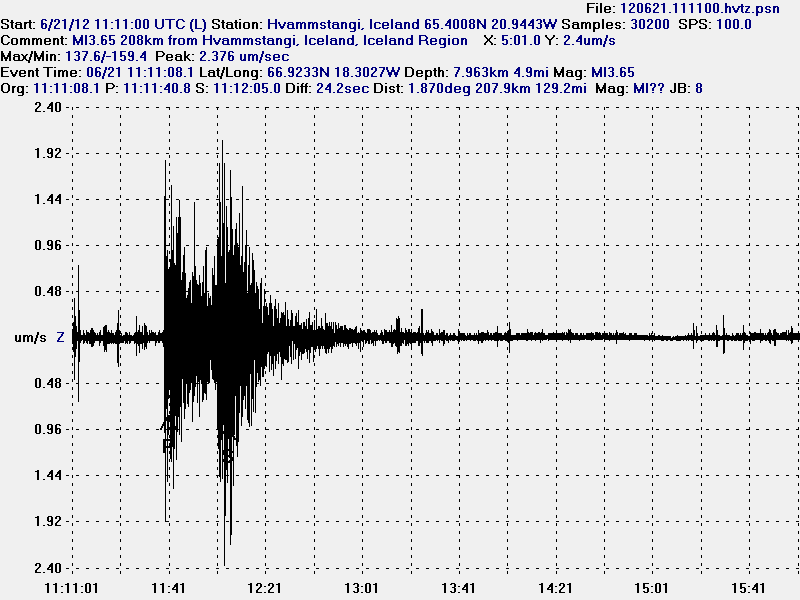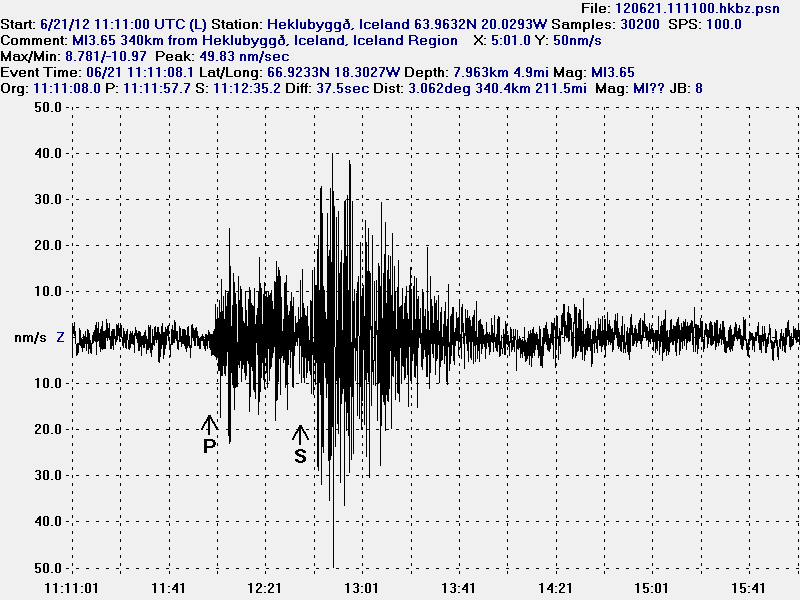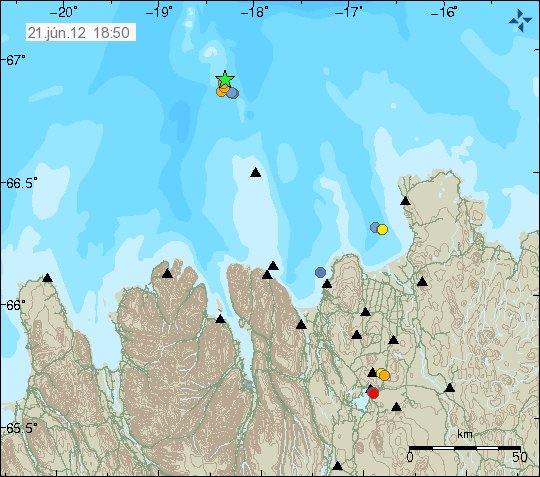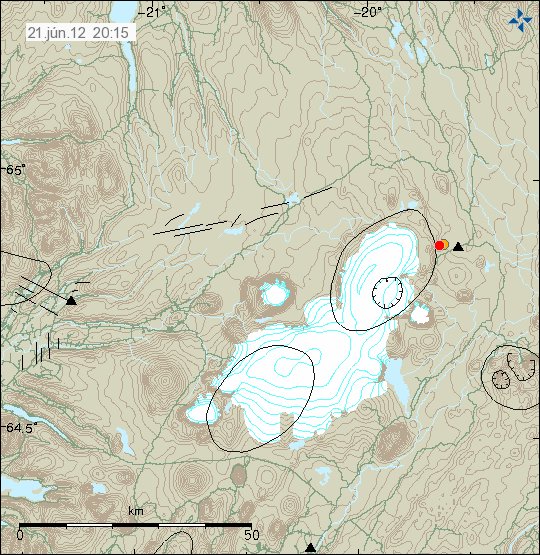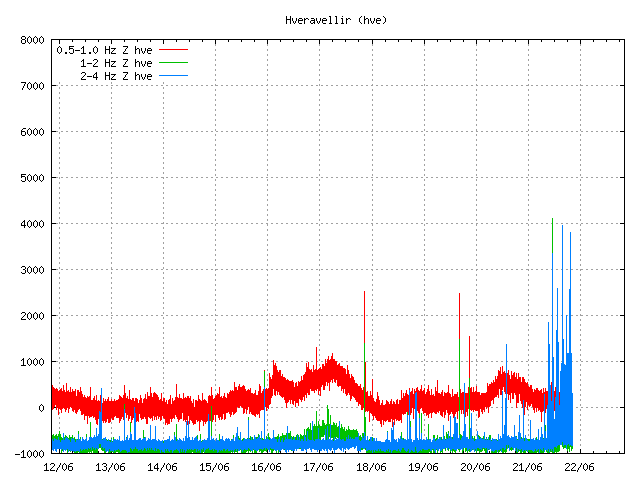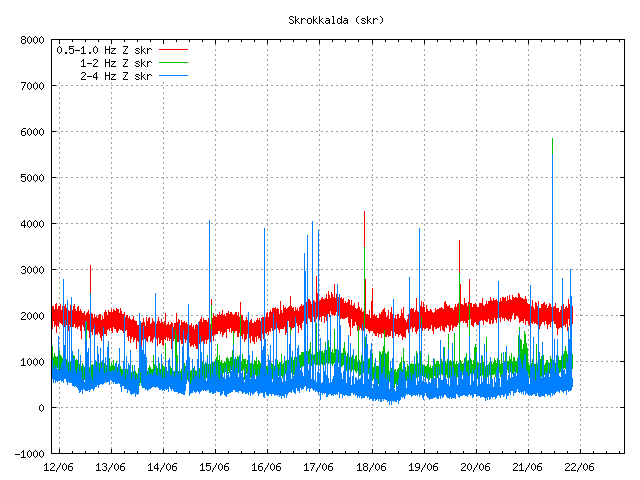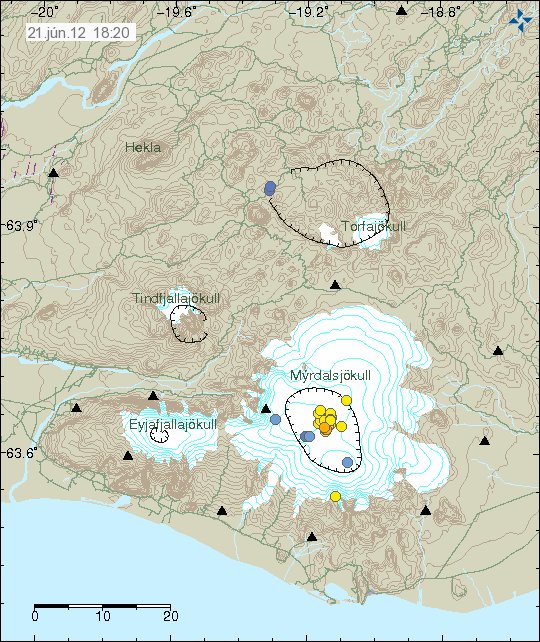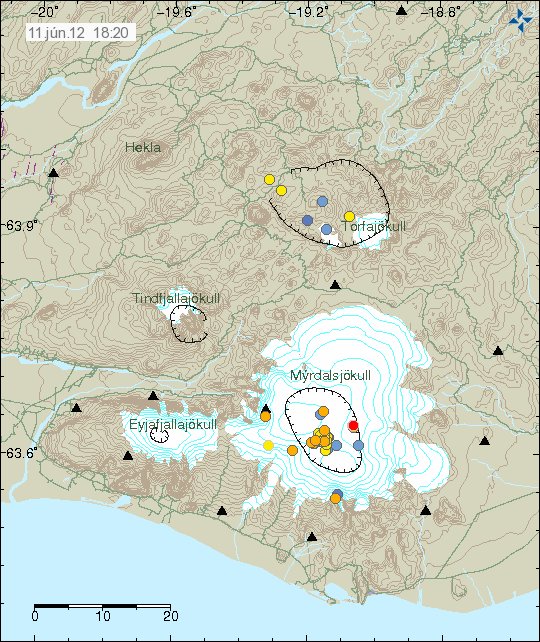This is just a short update on El Hierro volcano activity. I plan on making a longer blog post tomorrow when I am not so tired.
Current earthquake activity in El Hierro volcano is continues. The rate of earthquakes taking place in El Hierro volcano is about 10 earthquakes pr 1 hour. With high up to 20 earthquakes pr hour, and down to 2 earthquakes pr 1 hour. The rate of earthquakes with the magnitude larger then ML3.0 is about the same. They happen every few hours at random intervals. For the past few days a cluster of large earthquakes takes place every 10 to 12 hours. This pattern is not something to trust in, as it is going to change without warning. But it is controlled by inflow of magma at depth under El Hierro volcano. Most earthquakes take place at around 20 km depth, as that is where magma is being injected into El Hierro volcano. That however does not rule out the possibility of magma having reached higher up in the crust. Some of the earthquake taking place in El Hierro volcano are crustal stress earthquakes. As magma and inflation of El Hierro volcano is changing the stress in the crust close to it. The
Based on the data from last years events, the magma now is up to 5 km depth in the crust. That magma is for the moment not moving. It is just staying where it and cooling. That might change without warning if something changes inside El Hierro volcano. It is impossible to predict such event with any manner of accuracy. This magma is most likely going to stay where it is and cool off for the next few centuries (this is a different magma sill that is not creating so much earthquakes at the moment). The current magma injection is going to start an eruption in my opinion. It is just question of when and where. It is not a question of “if” in my opinion (non-professional opinion). Update: There are two or three magma sill in El Hierro volcano at present time. Not all of them are going to erupt. Current magma sill that is forming now is however going to erupt in my opinion. That sill formation has been creating earthquakes and inflation during the past two weeks. I know this sounds to be contradicting it self. But the situation in El Hierro volcano is a lot more complex then it seems.
I believe this location to the most likely place for an eruption. More or less. But there is also a risk of magma going somewhere unexpected. As is the risk with all volcanoes that erupt in the same manner as El Hierro volcano.
View Larger Map
Inflation has also been sharp following this earthquakes activity. With some areas reporting up to 120mm inflation during short period of time. This is common for volcanoes like El Hierro volcano. Some of this inflation areas might erupt in a fissure vent eruption. When and where are in this case impossible to predict until an eruption actually starts. This types of eruptions are normally not dangerous unless they are close to human habitat. This fissure vents might however be large in length, from several meters in length and up to several km long.
It is hard to know what happens next when it comes to volcano, any volcano that is. What happens in a volcano is poorly understood by everyone. So what happens next in El Hierro volcano is anyone guess. But I find it to be good advice for people living on the Island of El Hierro to stay alert for sudden change in El Hierro volcano behavior.
Spanish / Español (via Google Translate)
Esto es sólo una breve actualización sobre la actividad del volcán de El Hierro. Mi plan es hacer un mañana después de blog cuando ya no estoy tan cansado.
La actividad sísmica actual en El Hierro volcán continúa. La tasa de los terremotos que tienen lugar en El Hierro volcán es de unos 10 terremotos pr 1 hora. Con alta hasta 20 horas pr terremotos y terremotos de hasta 2 pr 1 hora. La tasa de terremotos con la magnitud más grande que ML3.0 es aproximadamente la misma. Se producen cada pocas horas a intervalos aleatorios. Para los últimos días un grupo de grandes terremotos se lleva a cabo cada 10 a 12 horas. Este patrón no es algo que confiar, ya que va a cambiar sin previo aviso. Sin embargo, está controlado por flujo de magma en las profundidades del volcán en El Hierro. La mayoría de los terremotos tienen lugar en torno a 20 km de profundidad, ya que es donde el magma se está inyectando en el volcán El Hierro. Que sin embargo no descarta la posibilidad de que el magma de haber alcanzado más arriba en la corteza. Algunos de los terremotos que tienen lugar en El Hierro son los sismos del volcán corteza de estrés. Cuando el magma y la inflación del volcán El Hierro está cambiando la tensión en la corteza de cerca a él. La
Con base en los datos de eventos de los años últimos, el magma es hasta una profundidad de 5 km en la corteza. Ese magma es por no pasar el momento. Se acaba de estar donde y refrigeración. Eso podría cambiar sin previo aviso si algo cambia en el interior del volcán de El Hierro. Es imposible predecir tal caso con cualquier forma de precisión. Este magma es más probable que va a quedarse donde está y refrescarse durante los próximos siglos (esto es un umbral de magma diferente que no es la creación de terremotos, por lo tanto en este momento). La inyección de magma en curso va a comenzar una erupción en mi opinión. Es sólo cuestión de cuándo y dónde. No es una cuestión de “si” en mi opinión (no profesionales opinión) . Actualización: Hay dos o tres alféizar de magma en el volcán de El Hierro en la actualidad. No todos ellos van a entrar en erupción. Alféizar de magma actual que se está formando ahora es, sin embargo va a estallar en mi opinión. Que la formación de solera ha sido la creación de terremotos y de la inflación durante las últimas dos semanas. Sé que esto suena a contradicción en si mismo. Pero la situación en El Hierro volcán es mucho más compleja de lo que parece. Link: Lámina (geología) (Wiki)
Creo que esta ubicación para el lugar más probable para una erupción. Más o menos. Pero también existe un riesgo de magma ir a un lugar inesperado. Como es el riesgo con todos los volcanes que hacen erupción de manera semejante como El volcán Hierro.
View Larger Map
La inflación también ha sido fuerte después de esta actividad los terremotos. Con algunas zonas informar a la inflación 120 mm durante el período de tiempo corto. Esto es común para los volcanes como el volcán El Hierro. Algunas de estas áreas la inflación podría entrar en erupción en un fisura de ventilación erupción. ¿Cuándo y dónde están en este caso imposible predecir una erupción hasta que realmente empieza. Este tipo de erupciones normalmente no son peligrosos a menos que se acercan al hábitat humano. Estos respiraderos de fisuras sin embargo, podría ser de gran longitud, de varios metros de longitud y de hasta varios kilómetros de largo.
Es difícil saber lo que sucede a continuación en lo que respecta al volcán, un volcán que es. Lo que ocurre en un volcán es poco comprendido por todos. Entonces, ¿qué ocurre a continuación en el volcán El Hierro es que nadie adivine. Pero me parece que sea un buen consejo para las personas que viven en la isla de El Hierro para mantenerse alerta para el cambio repentino en el comportamiento del volcán de El Hierro.
Blog post updated at 01:17 UTC on 04.07.2012. Explanation added to the blog post.
